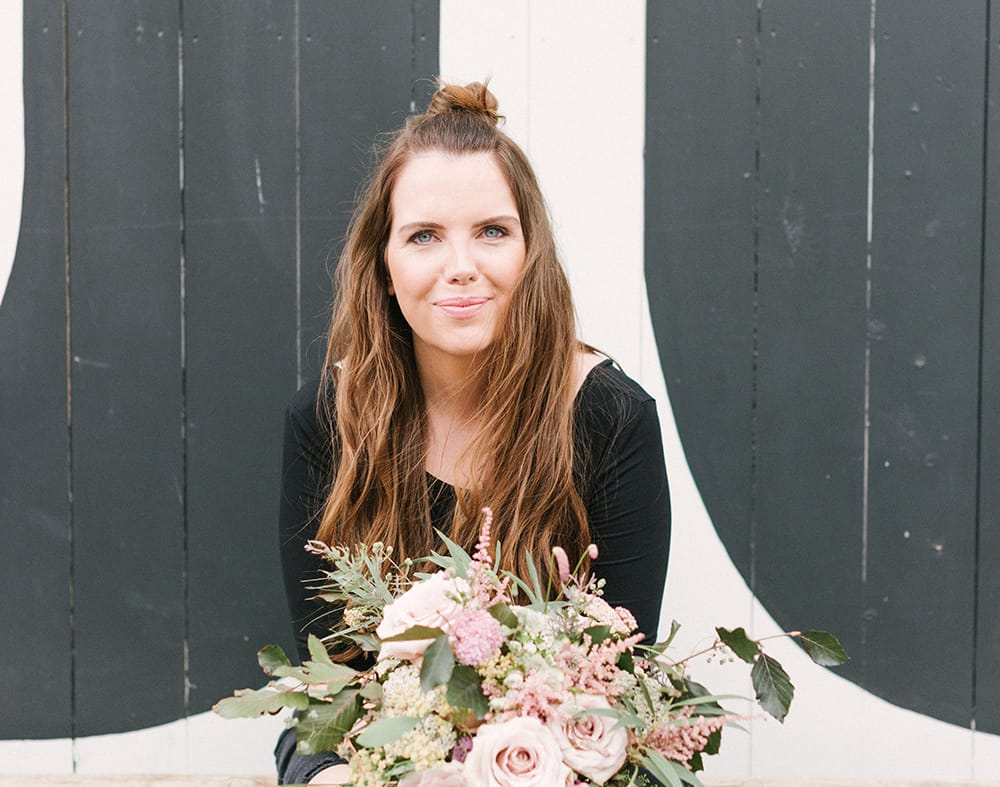Everything You Need to Know About Register Office Weddings
Whilst it can sometimes be a little daunting knowing where to start and what’s involved, we thought we’d try and answer some of the questions you might have around Register Office and Town Hall weddings.
Over to the team at Islington Town Hall for all the answers…
Notes from Islington Town Hall
What is a civil ceremony?
A civil ceremony is a term we use to describe a legal, non-religious marriage or civil partnership ceremony. These ceremonies are conducted by registrars employed by the council, who also provide the legal certificate and keep the official record of the marriage or civil partnership. Civil marriage ceremonies were brought in to law in 1837, to provide a non-religious alternative to Church of England marriages for people of other faiths, or who are of no religion.
There are some differences in the law between ‘marriage’ and ‘civil partnership’:
A marriage in England and Wales can be between same-sex or opposite-sex couples. Marriage is a verbal contract, meaning you must say prescribed words to be legally married. After a marriage ceremony you will be declared to be husband/wife and your legal status will be ‘married’.
A civil partnership in England and Wales is currently only available to same-sex couples. This was the only option for same-sex couples before the law changed to allow same-sex marriages, but same-sex couples can still choose to have a civil partnership if they prefer. After a civil partnership ceremony, you will be declared to be civil partners in law. Your legal status will be ‘civil partner’. A civil partnership can be converted into a marriage at a later date if the couple choose to do so.
The civil partnership law currently states that only same-sex couples can have a civil partnership. However, the Supreme Court’s decision that this law is incompatible with the European Convention on Human Rights means that civil partnerships will be available to opposite-sex couples in the future. At the time of writing, it looks like the first opposite-sex civil partnerships will be able to take place from February 2020, although this date may change.
Civil ceremonies must take place in licenced venues, which have been properly inspected to make sure they are safe, accessible to all, and appropriate for ceremonies. The venue must be a fixed structure and must not be a religious premises, such as a currently active church.
How can I make this type of ceremony personal?
In Islington, most of our ceremonies can be personalised with readings, personal vows, and music. When you book, we send you our sample ceremonies, and you can choose one, or combine a few to make the ceremony completely bespoke. There are some legal words that need to be said (for marriage ceremonies), but otherwise you can make the ceremony as personal as you like. For weekend ceremonies, the registrars are assigned at least a month ahead of the date, so you can chat with them in person or by phone beforehand if you wish.
However, most register offices offer a room or certain times where only a ‘simple ceremony’ is available, which is great for couples who would prefer as little fuss as possible. These are often on weekdays, in smaller ceremony rooms, and can be less expensive than other options. Our advice is to read the information carefully about the room or time slot you are booking, as whilst these simple ceremonies are perfect for some, if personalisation is very important to you, they won’t be suitable.

Image by <a class="text-taupe-100" href="http://eclection-photography.com" target="_blank">Eclection Photography</a>.
Everything You Need to Know About Register Office Weddings.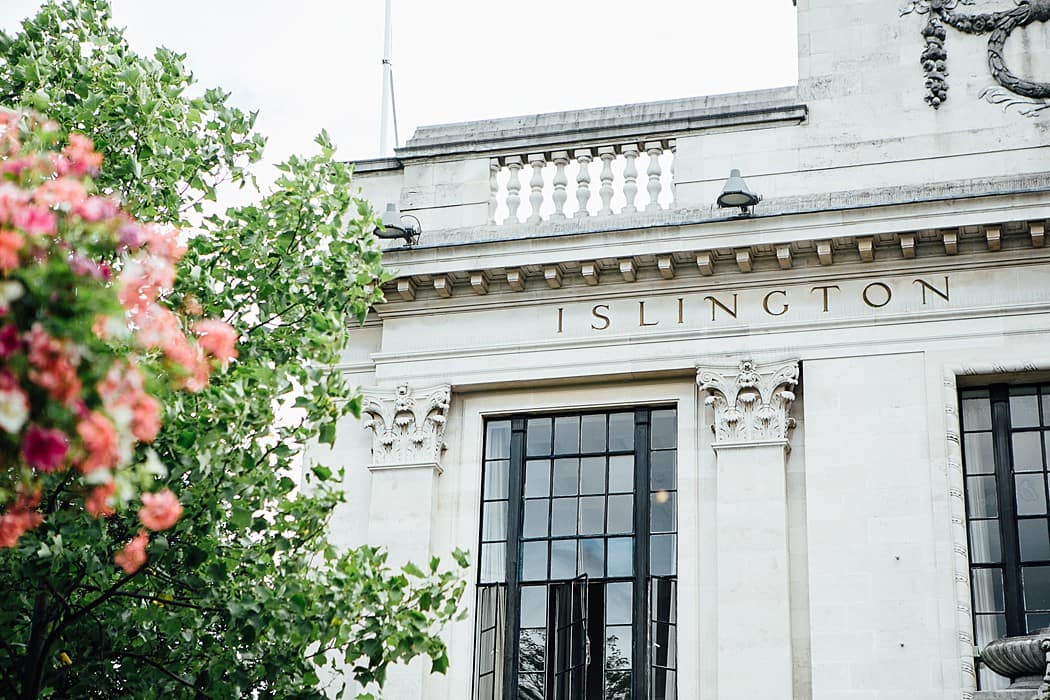
Image by <a class="text-taupe-100" href="https://www.helenabrahamphotography.com" target="_blank">Helen Abraham Photography</a>.
Everything You Need to Know About Register Office Weddings.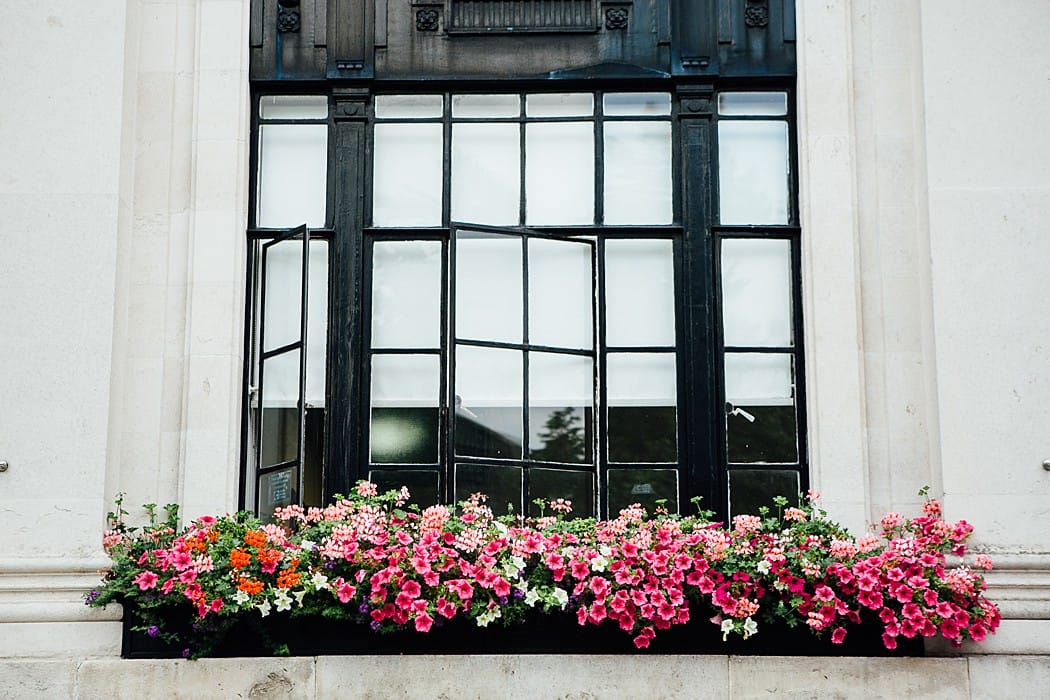
Image by <a class="text-taupe-100" href="https://www.helenabrahamphotography.com" target="_blank">Helen Abraham Photography</a>.
Everything You Need to Know About Register Office Weddings.
Image by <a class="text-taupe-100" href="http://eclection-photography.com" target="_blank">Eclection Photography</a>.
Everything You Need to Know About Register Office Weddings.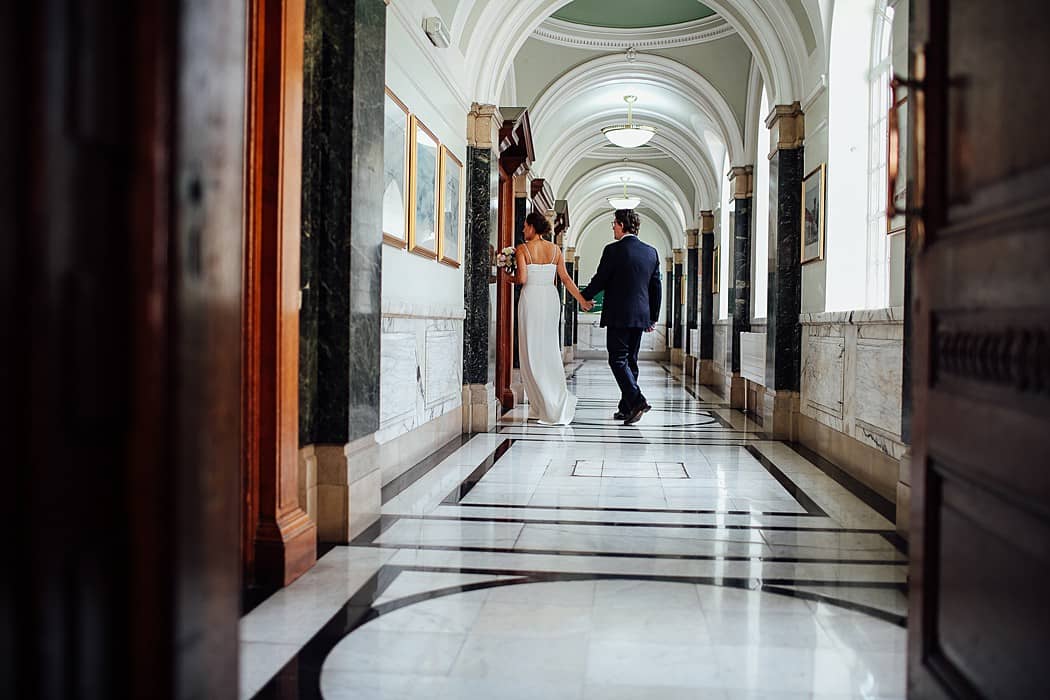
Image by <a class="text-taupe-100" href="https://www.helenabrahamphotography.com" target="_blank">Helen Abraham Photography</a>.
Everything You Need to Know About Register Office Weddings.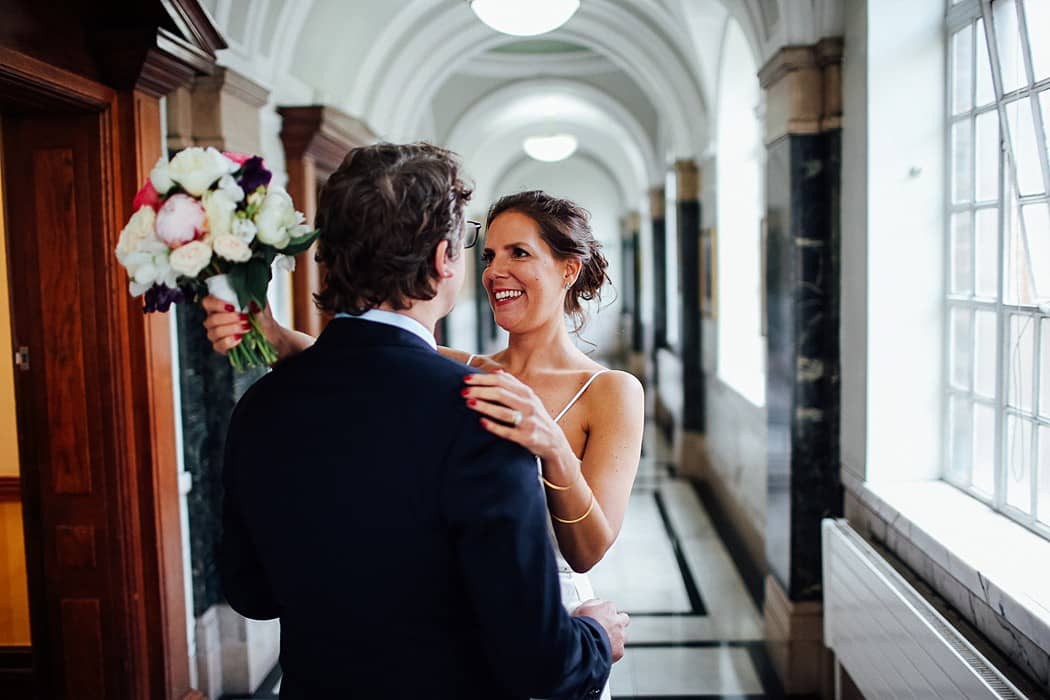
Image by <a class="text-taupe-100" href="https://www.helenabrahamphotography.com" target="_blank">Helen Abraham Photography</a>.
Everything You Need to Know About Register Office Weddings.
Why do couples choose a register office ceremony?
These days, couples choose a register office for a variety of reasons. Many couples who don’t have a strong religious faith feel more comfortable with a civil ceremony, where they can have more freedom in making the ceremony personal to them. Others may worship at a place which isn’t licenced for legal marriage, and visit the register office for the legal ceremony before their religious one. Quite a few couples who have small ceremonies are planning a larger celebration elsewhere, like in another country, or in a place that can’t be licenced for legal ceremonies, such as at an outdoor location.
Most couples who choose Islington Town Hall love the traditional and beautiful architecture, which looks great in their photographs, as well as its location near to many popular reception venues, and also the friendly staff! Other couples feel strongly that getting married in the borough they live in is important to them.
What is the process of having a register office ceremony?
The normal process is: first, decide where you want to have the ceremony and book the room you prefer. Some couples don’t realise that you can have your ceremony in any register office, not just in your local one, so find one that suits you. Up to a year in advance, you will need to ‘give notice’, which involves confirming your identity, nationality and address, usually to your local register office, regardless of where the ceremony will take place. Once you have ‘given notice’ and paid the fees for the ceremony booking, the only thing left to do is plan how you would like the ceremony to go!
How much does it cost?
The fee for giving notice is currently £35 – £47 per person, depending on you and your partner’s immigration status. Additional fees may apply to those who have been previously divorced abroad. These fees are set by central government and are the same for every Register Office in England and Wales.
The fee for a Town Hall ceremony varies between different districts and these fees are set by the local council. At Islington Town Hall, the fees are based on the size of the ceremony room, the level of personalisation available, and the staffing costs for different days of the week. Our ceremonies start from £180 for a simple weekday ceremony.
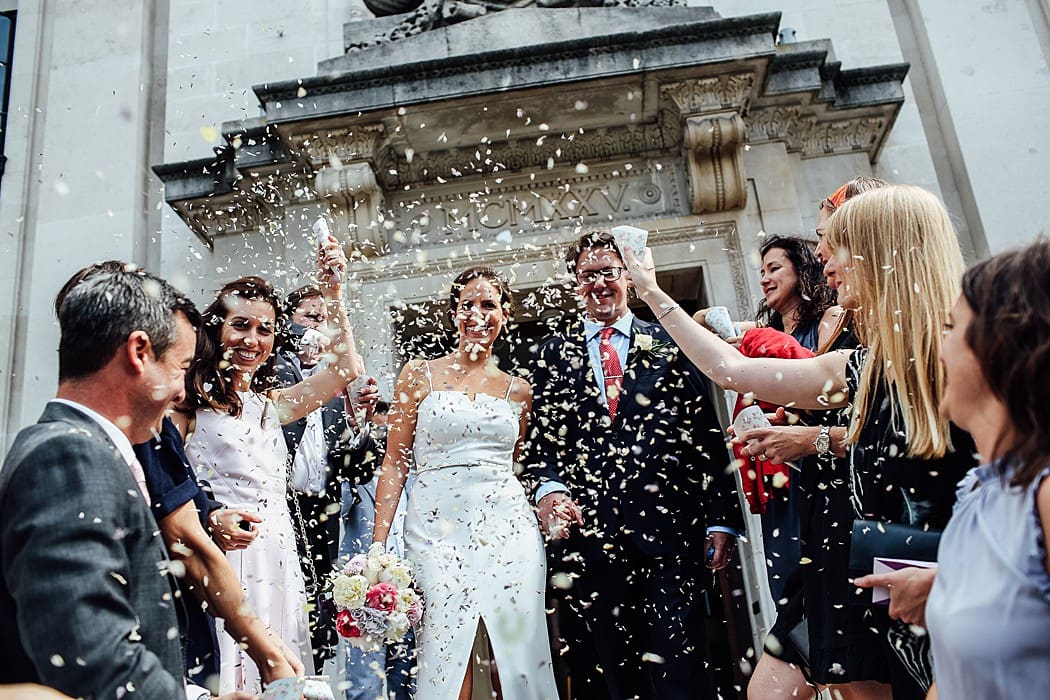
Image by <a class="text-taupe-100" href="https://www.helenabrahamphotography.com" target="_blank">Helen Abraham Photography</a>.
Everything You Need to Know About Register Office Weddings.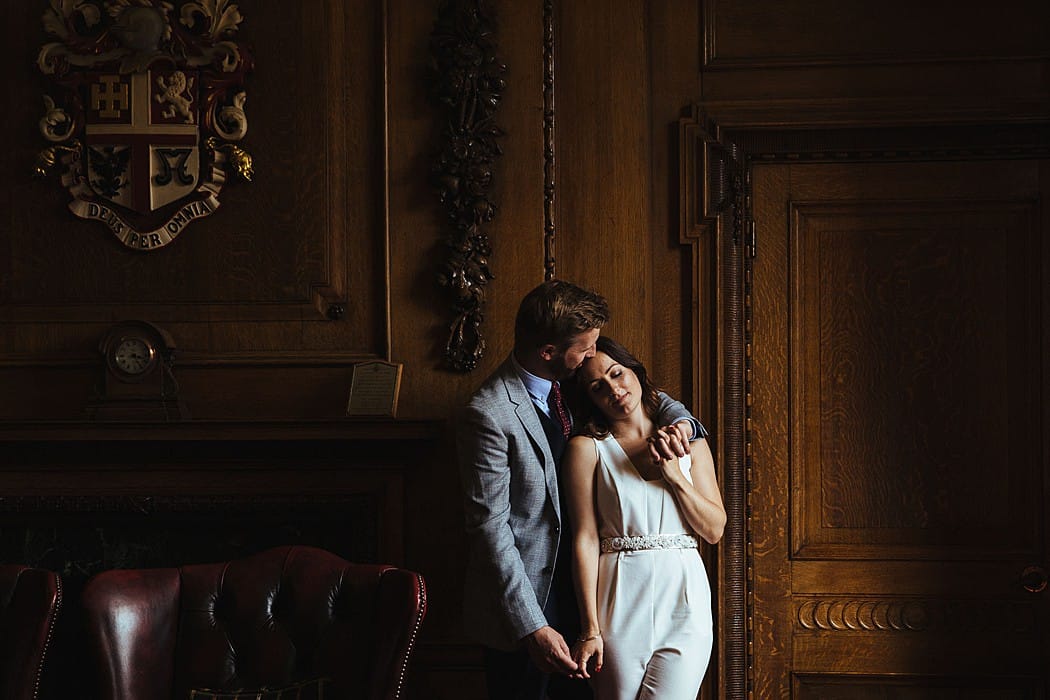
Image by <a class="text-taupe-100" href="http://www.lyndseygoddard.com" target="_blank">Lyndsey Goddard Photography</a>.
Everything You Need to Know About Register Office Weddings.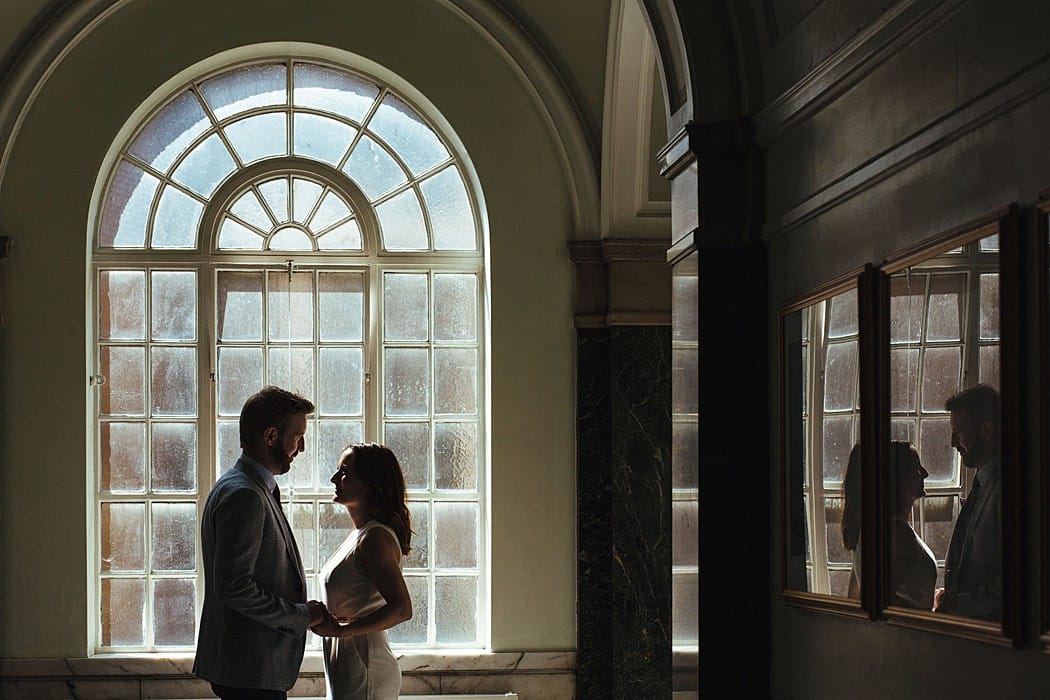
Image by <a class="text-taupe-100" href="http://www.lyndseygoddard.com" target="_blank">Lyndsey Goddard Photography</a>.
Everything You Need to Know About Register Office Weddings.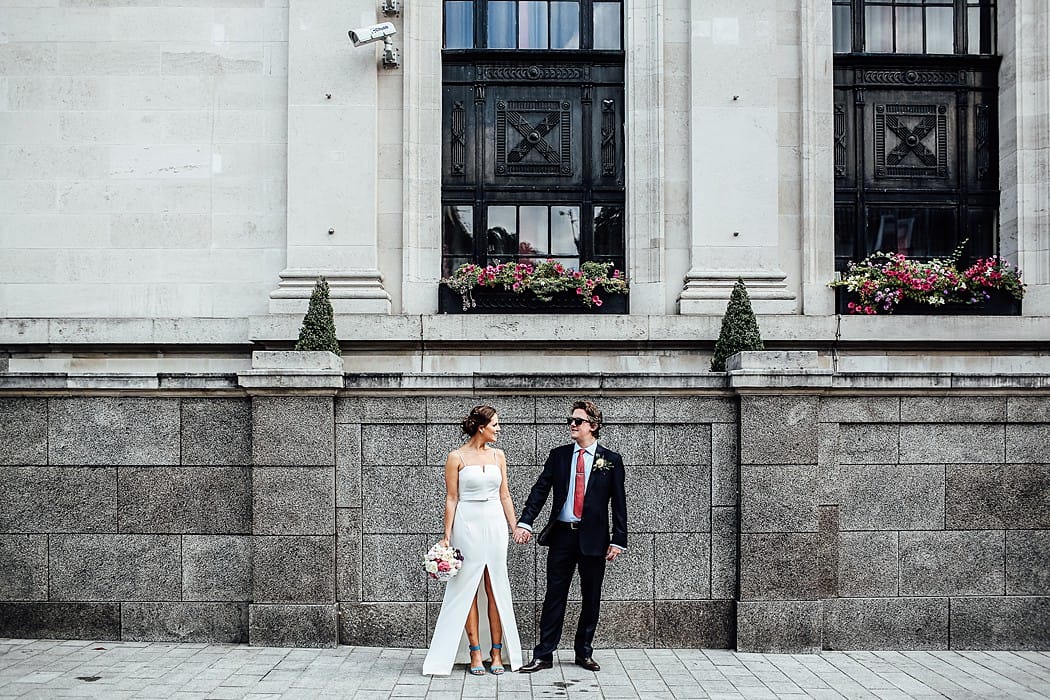
Image by <a class="text-taupe-100" href="https://www.helenabrahamphotography.com" target="_blank">Helen Abraham Photography</a>.
Everything You Need to Know About Register Office Weddings.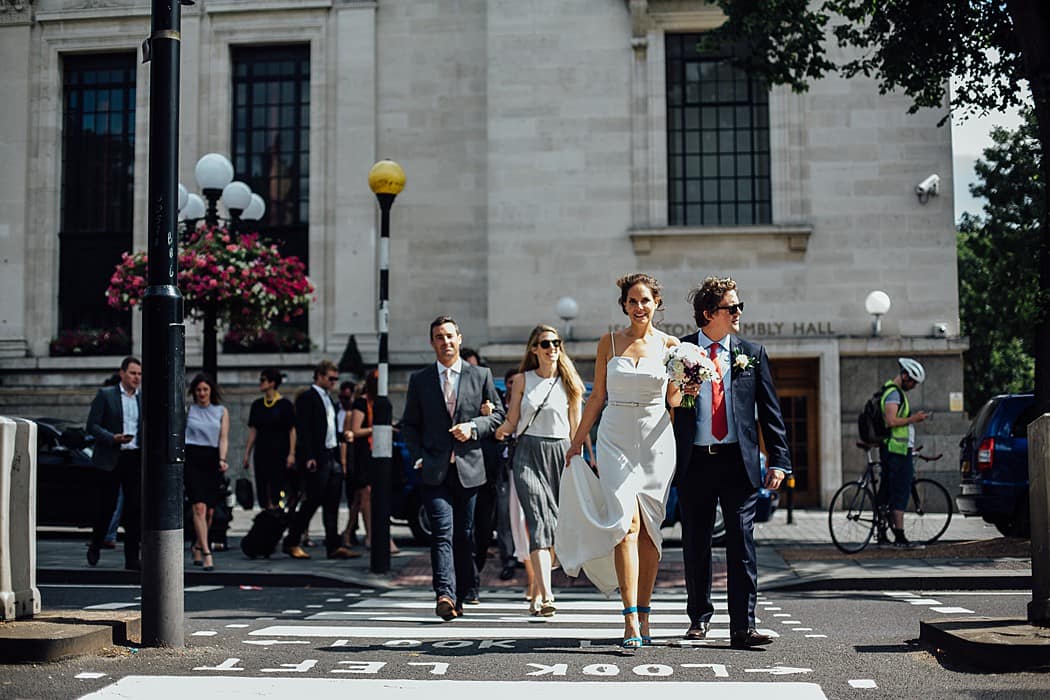
Image by <a class="text-taupe-100" href="https://www.helenabrahamphotography.com" target="_blank">Helen Abraham Photography</a>.
Everything You Need to Know About Register Office Weddings.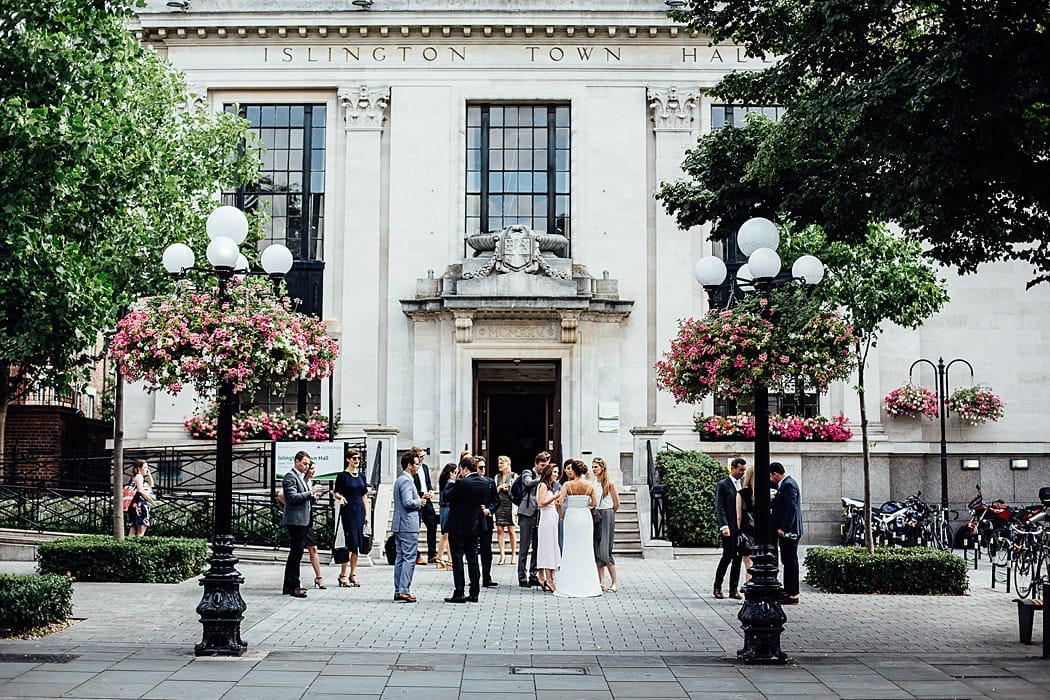
Image by <a class="text-taupe-100" href="https://www.helenabrahamphotography.com" target="_blank">Helen Abraham Photography</a>.
Everything You Need to Know About Register Office Weddings.
Can we decorate the ceremony venue?
Although each ceremony venue will have their own policy on this, at Islington Town Hall, you are welcome to bring your own personal flowers or decorations with you. We do also have very nice artificial flower arrangements in each ceremony room, so it won’t be bare without bringing your own. As there are likely to be other ceremonies that day, we would ask that any flowers or other decorations you would like to bring are brought in and taken out of the room within the ceremony slot you have booked.
Is there anything we can’t do at a civil ceremony?
Whilst every licenced civil venue will have rules about their individual premise (confetti inside, or bringing your pet, for example), all civil ceremonies have to abide by some legal rules. The most common ones we are asked about are:
- Religious elements. Some things that couples may assume are non-religious parts of a standard ceremony such as ‘to have and to hold, for better, for worse, for richer, for poorer; actually come from the Church of England ceremony and are not allowed to be used at civil ceremonies. This also means reading from religious texts and religious songs such as hymns cannot be part of the civil ceremony.
- Food and drink. This must not be served in the ceremony room before or during a ceremony.
- Friends or family conducting the ceremony. They are welcome to read something during the ceremony, but legally the ceremony must be conducted by a registrar.
The best thing to do is ask your registrar if you have a specific question about what you would like at your ceremony, and they will advise you.
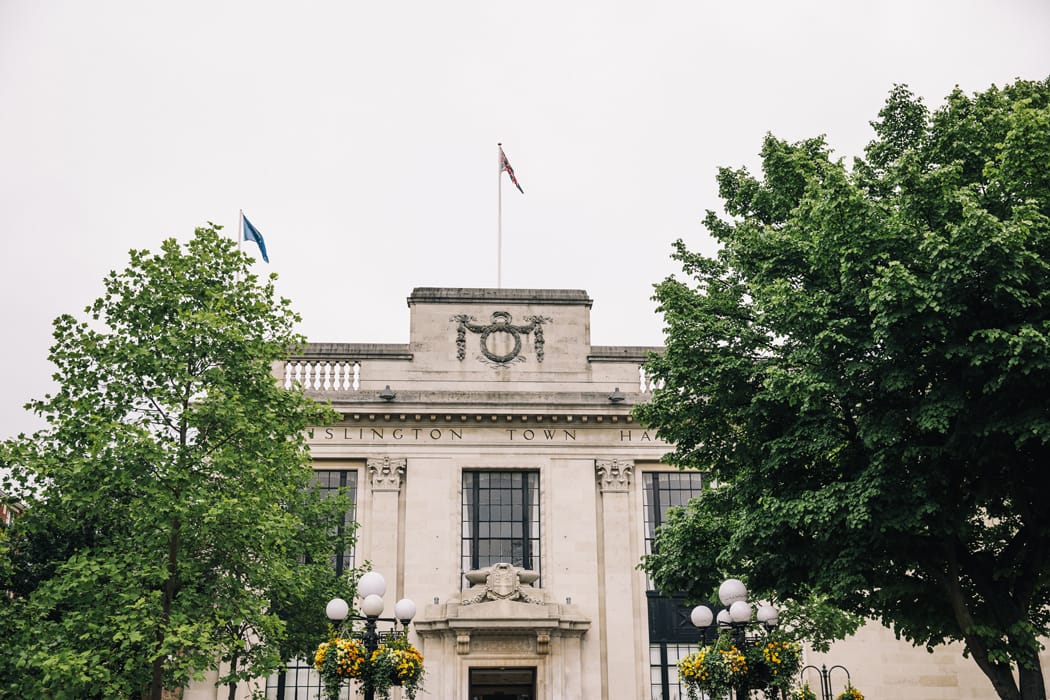
Image by <a class="text-taupe-100" href="http://eclection-photography.com" target="_blank">Eclection Photography</a>.
Everything You Need to Know About Register Office Weddings.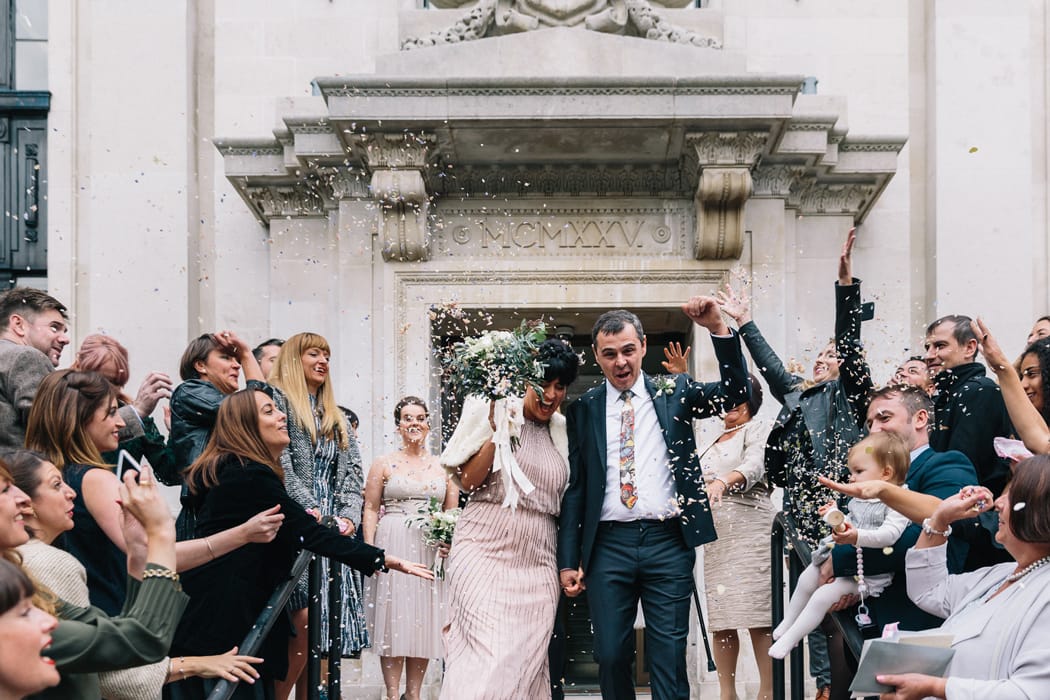
Image by <a class="text-taupe-100" href="http://eclection-photography.com" target="_blank">Eclection Photography</a>.
Everything You Need to Know About Register Office Weddings.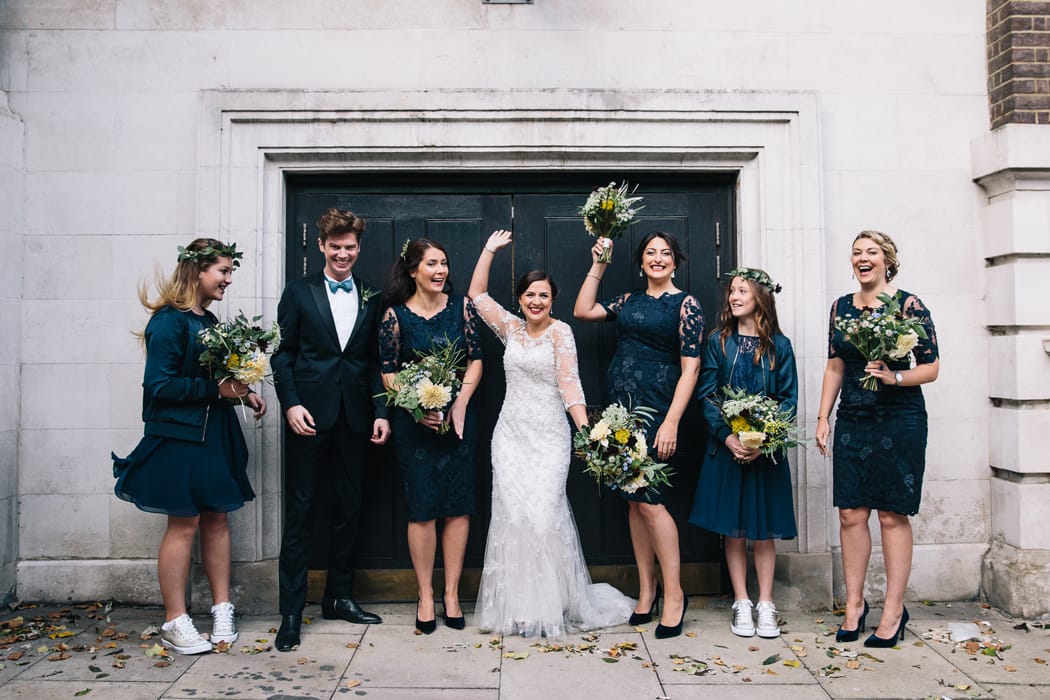
Image by <a class="text-taupe-100" href="http://eclection-photography.com" target="_blank">Eclection Photography</a>.
Everything You Need to Know About Register Office Weddings.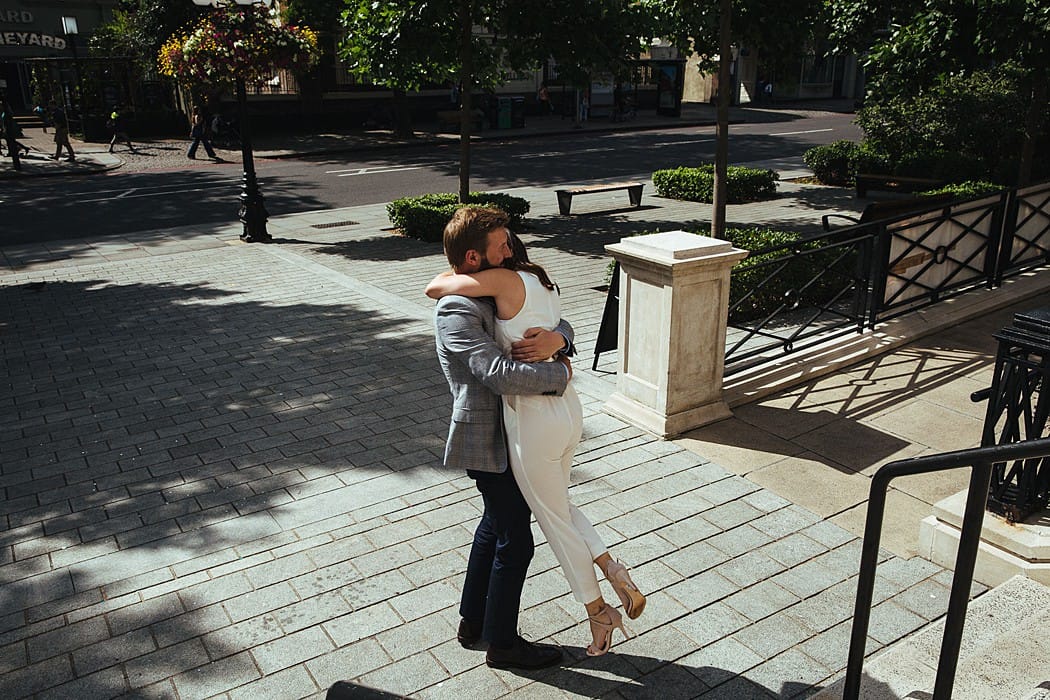
Image by <a class="text-taupe-100" href="http://www.lyndseygoddard.com" target="_blank">Lyndsey Goddard Photography</a>.
Everything You Need to Know About Register Office Weddings.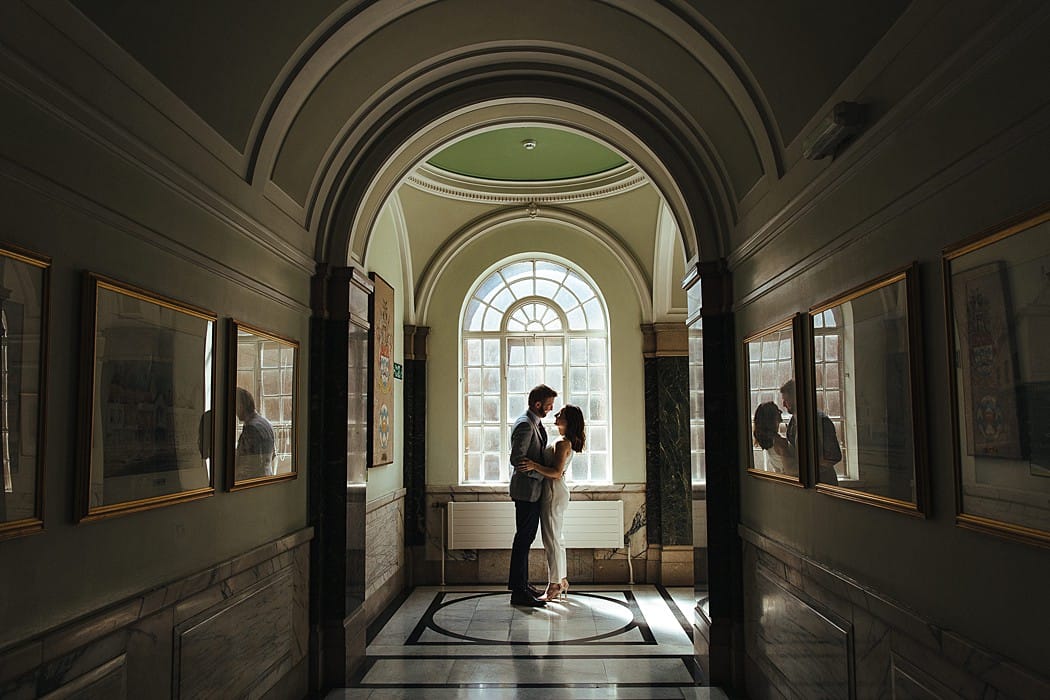
Image by <a class="text-taupe-100" href="http://www.lyndseygoddard.com" target="_blank">Lyndsey Goddard Photography</a>.
Everything You Need to Know About Register Office Weddings.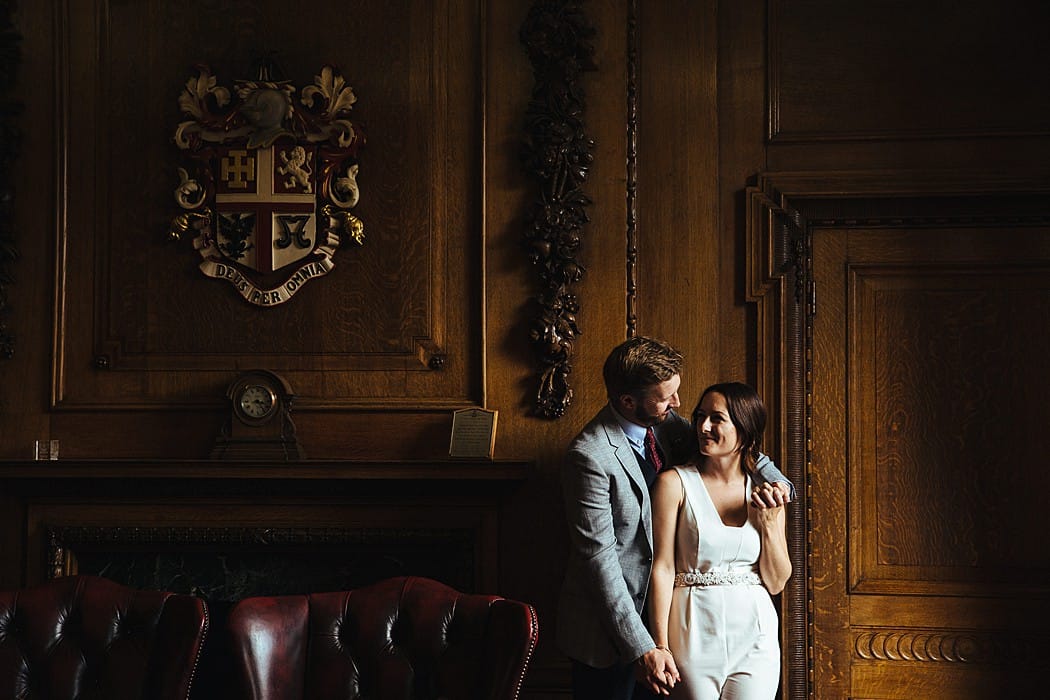
Image by <a class="text-taupe-100" href="http://www.lyndseygoddard.com" target="_blank">Lyndsey Goddard Photography</a>.
Everything You Need to Know About Register Office Weddings.
How long does the ceremony last?
The average ceremony will take about 30 minutes, depending on the length and number of any readings.
Where do we give notice?
If you are both British or EU citizens, you will do this in the Register Office for the council area you live in, even if that is not the one you are having your ceremony in. Only residents of the London Borough of Islington should come to Islington Town Hall for their notice.
If either if you are foreign nationals, subject to immigration control, you must give your notices at a designated Register Office. This is a Register Office that is authorised to take the notices of foreign nationals. The Register Office for the council area you live in may be a designated Register Office, but if it isn’t, you will need to find a designated Register Office you can go to. Most London Register Offices are designated.
What documents do we take?
Most people need to bring passports and recent proof of address like a bank statement or utility bill.
If you have been married or in a civil partnership before, you will need to show proof that that union has ended. This could be a death certificate, decree absolute or final dissolution of civil partnership document.
This is a brief outline, so please see our website for full document details.
Discover our Venues
Refine your wedding venue search by location, capacity, type, and style.
Visit Venue FinderSuppliers We Love
From photographers to bridal fashion and styling, find the best wedding suppliers right here.
View Suppliers